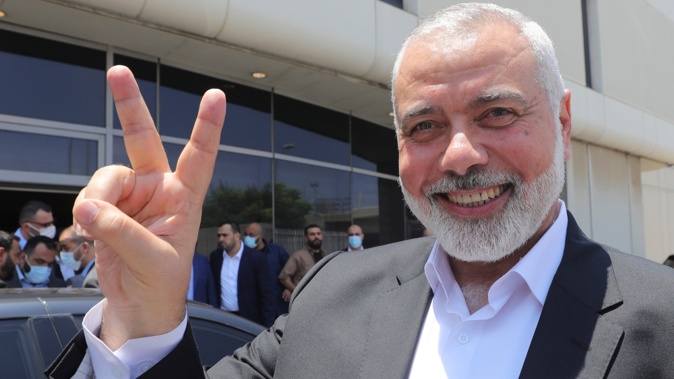
Iran is not looking to escalate regional tensions but believes it needs to punish Israel to prevent further instability, the foreign ministry says, following the killing of Hamas leader Ismail Haniyeh in Tehran.
“Iran seeks to establish stability in the region but this will only come with punishing the aggressor and creating deterrence against the adventurism of the Zionist regime[Israel],” ministry spokesman Nasser Kanaani said on Monday, adding that action from Tehran was inevitable.
Kanaani called on the United States to stop supporting Israel, saying the international community had failed in its duty to safeguard stability in the region and should support the “punishment of the aggressor”.
Iran’s foreign ministry called in ambassadors and heads of missions residing in Tehran for a meeting with acting Foreign Minister Ali Bagheri Kani on Monday to reiterate Iran’s will to respond to Israel.
An emergency meeting of the Organisation of Islamic Co-operation would be held on Wednesday at Iran’s request to discuss the killing of Haniyeh and Iran’s response, Kanaani said.
Tehran and Iran-aligned groups such as Hamas and Hezbollah have accused Israel of killing Haniyeh on July 31 in the Iranian capital.
His death was one in a series of killings of senior Hamas figures as the war in Gaza between Hamas and Israel nears its 11th month.
Israeli officials have not claimed responsibility.
The Islamic Revolutionary Guards Corps’ top Commander Hossein Salami on Monday repeated the elite group’s threat that Israel “will receive punishment in due time”.
Regional tensions have increased following the assassination on Wednesday of Ismail Haniyeh, the leader of the Palestinian Islamist group Hamas, in Tehran a day after an Israeli strike in Beirut killed Fuad Shukr, a senior military commander from the Lebanese group Hezbollah.
Both groups are backed by Iran.
There are mounting fears that Israel’s war against Palestinian militants in Gaza, which began in October after attacks on the Jewish state, could escalate into a wider Middle East conflict.
US President Joe Biden will convene his national security team in the situation room on Monday to discuss developments in the Middle East, the White House said, adding that he would also speak with Jordan’s King Abdullah.
US news service Axios reported that US Secretary of State Antony Blinken told his counterpart from G7 countries that Iran and Hezbollah could start attacking Israel as early as Monday, but it was unclear how they would strike and he did not know the exact timing.
The Pentagon said on Friday it would deploy additional fighter jets and Navy warships to the region.
“The overall goal is to turn the temperature down in the region, deter and defend against those attacks, and avoid regional conflict,” Jonathan Finer, the White House’s deputy national security adviser, said on CBS’s Face the Nation programme.
The US and Israel were preparing for every possibility, Finer said.
There was a “very close call” of regional conflagration in April, Finer said, when Iran launched an attack on Israeli territory with drones and missiles after what it called an Israeli strike on its consulate in Damascus on April 1 that killed seven officers of the Islamic Revolutionary Guard Corps in the Syrian capital.
The US wanted to be prepared should that situation rise again, Finer said.
Take your Radio, Podcasts and Music with you









